By Derrick Hills, AsAmNews Intern
With 3 gripping episodes released so far, a powerful new podcast called Campu just launched last month. The series dives into compelling narratives from thousands of Japanese Americans during World War II. Wrongfully incarcerated throughout the war, their only “crime” was being Japanese in the United States.
Centering voices of camp survivors from Densho’s oral history collection, each episode focuses on a seemingly ordinary item. Using lived historical perspectives, Campu creators/narrators Hana and Noah Maruyama reveal how these objects still hold incredible significance for many camp survivors and their descendants.
As yonsei (4th generation) descendants of camp survivors, siblings Hana and Noah grew up surrounded by their family’s memories of incarceration. In an interview with AsAmNews, Hana says those striking tales her family shared over the years inspired the podcast’s creation:
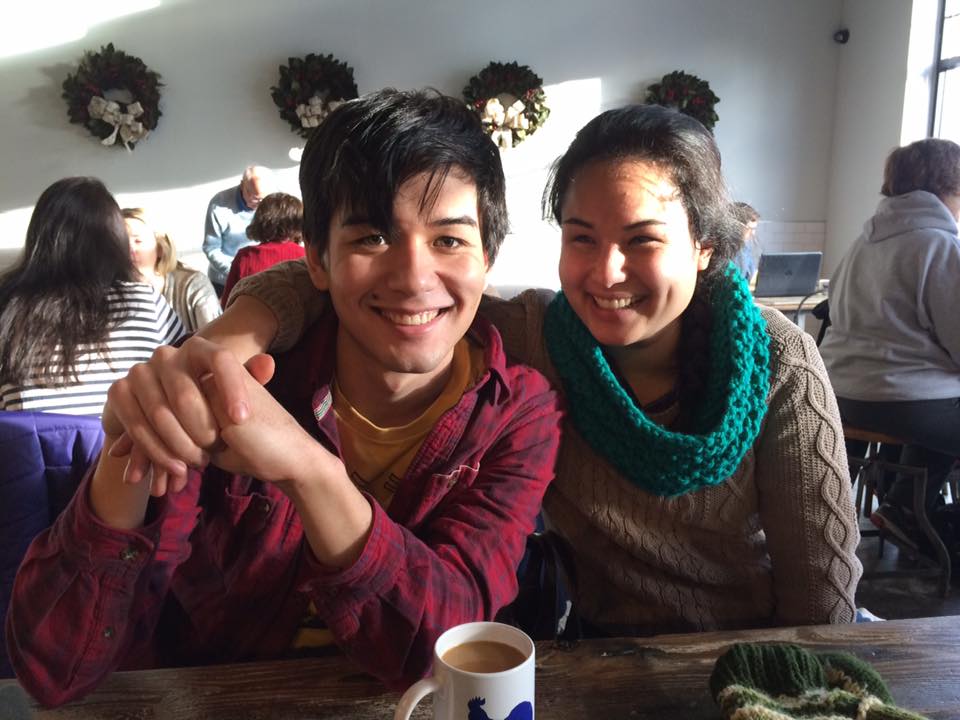
Hana & Noah Maruyama; Photo via Densho
“[Its] name comes from something that our family talked about,” Hana explains. “Collecting things in camp was called Campu no kuse, or Camp Custom. I think that a lot of what we’re doing with the podcast is collecting stories about the incarceration; So, the name made sense for that reason.”
Citing over 3 generations of narratives which were widely suppressed for decades, Hana believes storytelling “can be a powerful tool for healing. [This is particularly important] when there’s so much silence around that history.” She notes the “sheer number of voices” included in Campu makes it unique among Japanese American incarceration stories. In fact, this — along with their vision of the incarcerees as “co-narrators [embedded] in the storytelling” — sets Campu apart.
With upwards of 120,000 different experiences and 1,000 interviews, doing everyone’s stories justice is impossible. Hana tells AsAmNews that this is exactly what they hope to emphasize through the podcast. “[Even] in their own histories, marginalized communities aren’t often allowed to speak for themselves. I wanted to make sure their voices really came through here,” she adds.
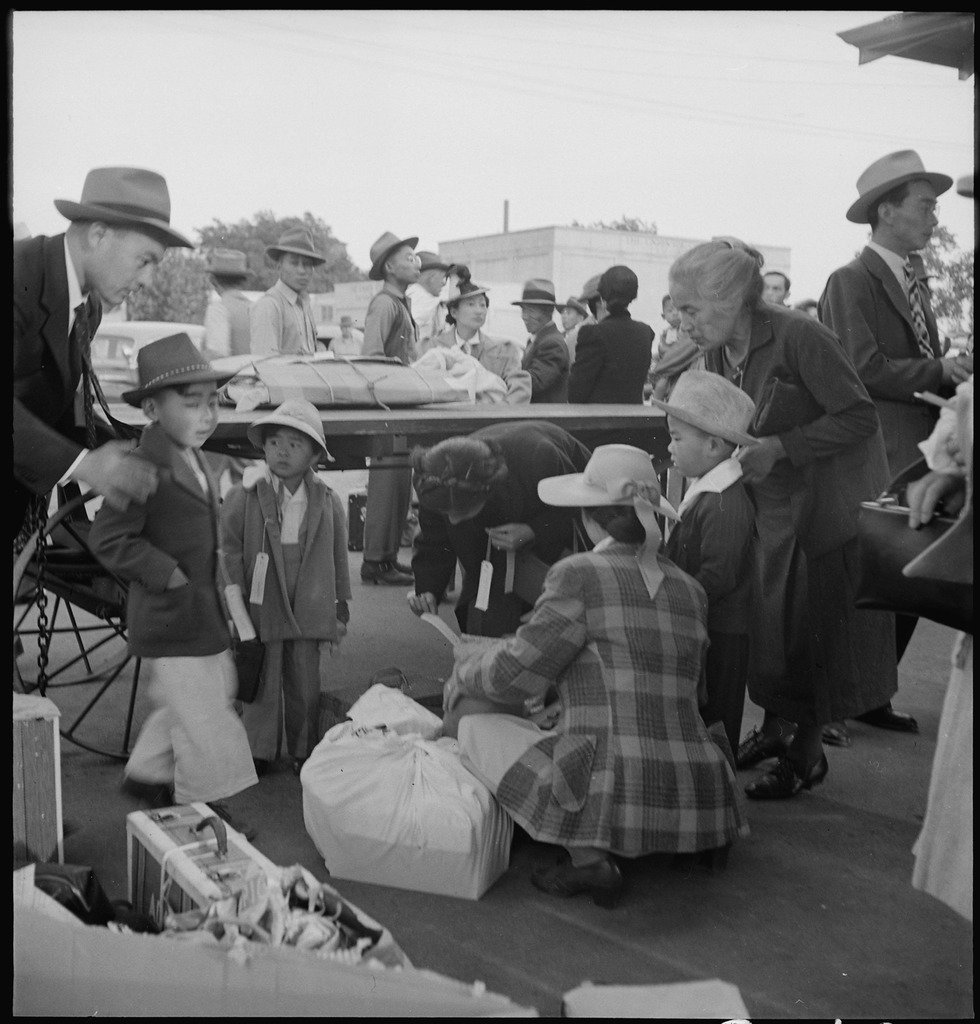
Family boarding train in Woodland, CA for Merced Assembly Center, May 20, 1942; Photo by Dorothea Lange via Densho

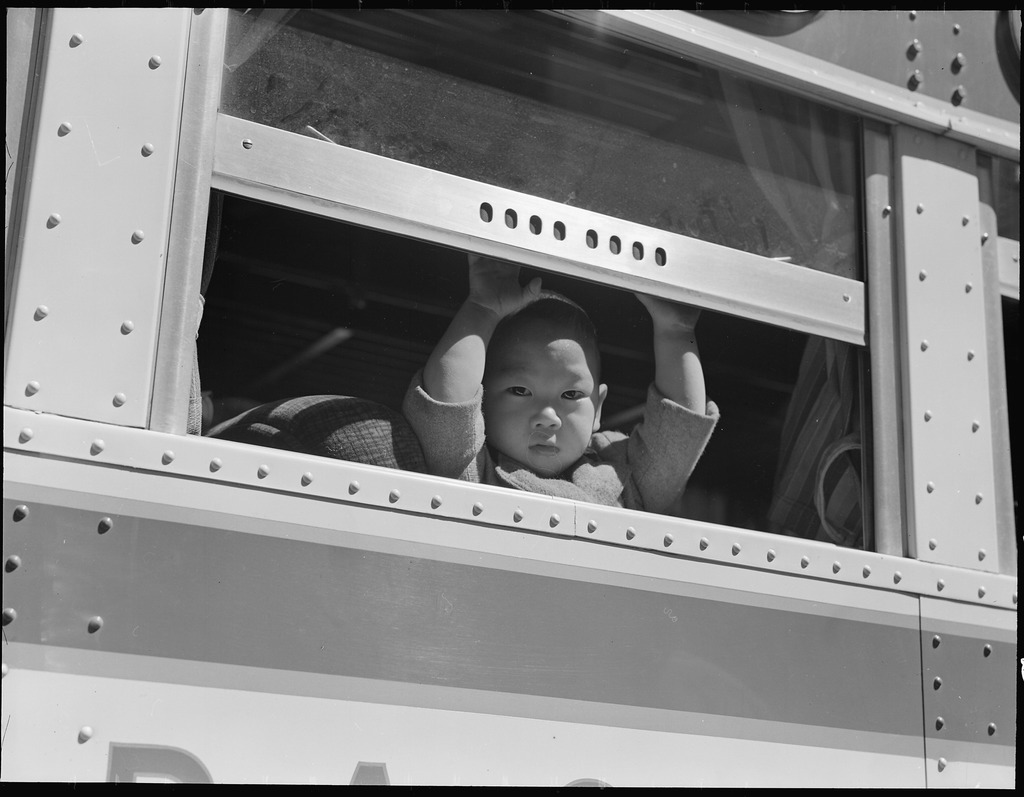
After 3 episodes, it seems this hard work has begun to pay off. Already receiving positive feedback from audiences around the country, Hana says the project feels worthwhile.
“It’s been such a gift to see how [Campu] helped [others heal] too,” she recalls. The reviews [from people] talking about how this feels like their family’s history — it gives me such joy that our podcast could do that for them.”
But Hana also tells us she wants those who are not Japanese American to tune in to Campu as well. Regardless of background, she encourages anyone “to learn a little more about the incarceration than what that 30-minute segment of ninth grade history [or] 1-paragraph excerpt in the textbook taught.”
If even that.

Tanforan Assembly Center, June 16, 1942; Photo by Dorothea Lange via Densho
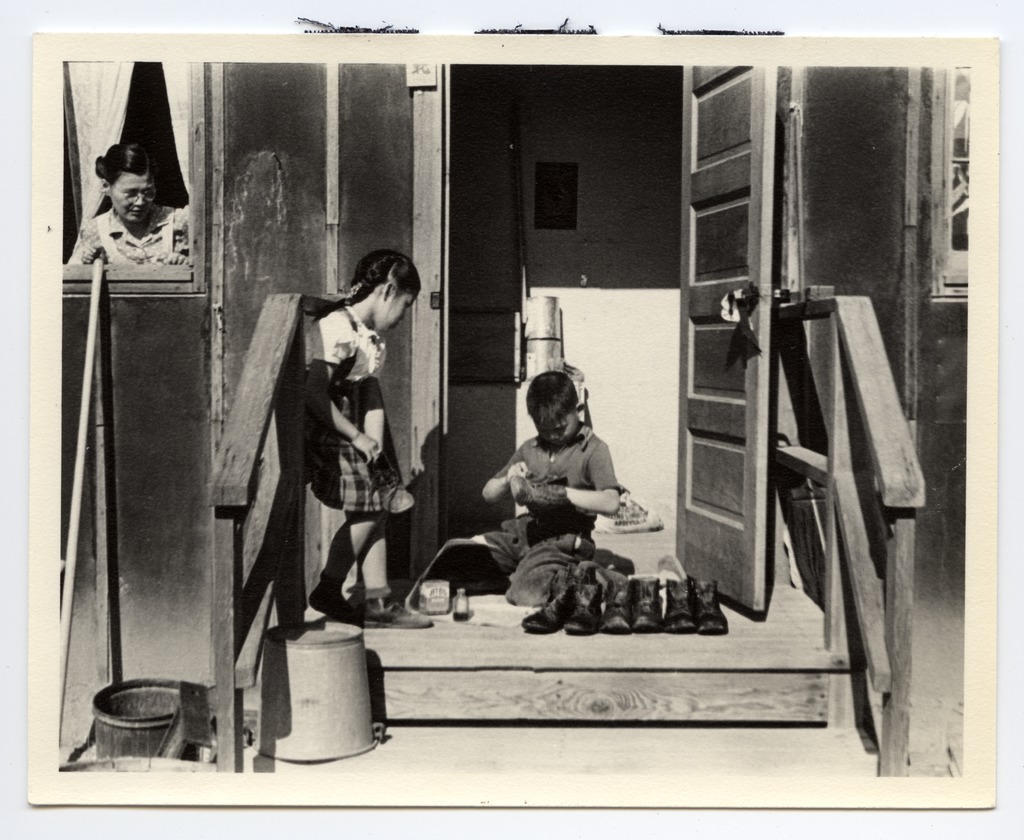
2 children cleaning shoes in Cody, Wyoming; Photo by Yoshio Okumoto via Densho
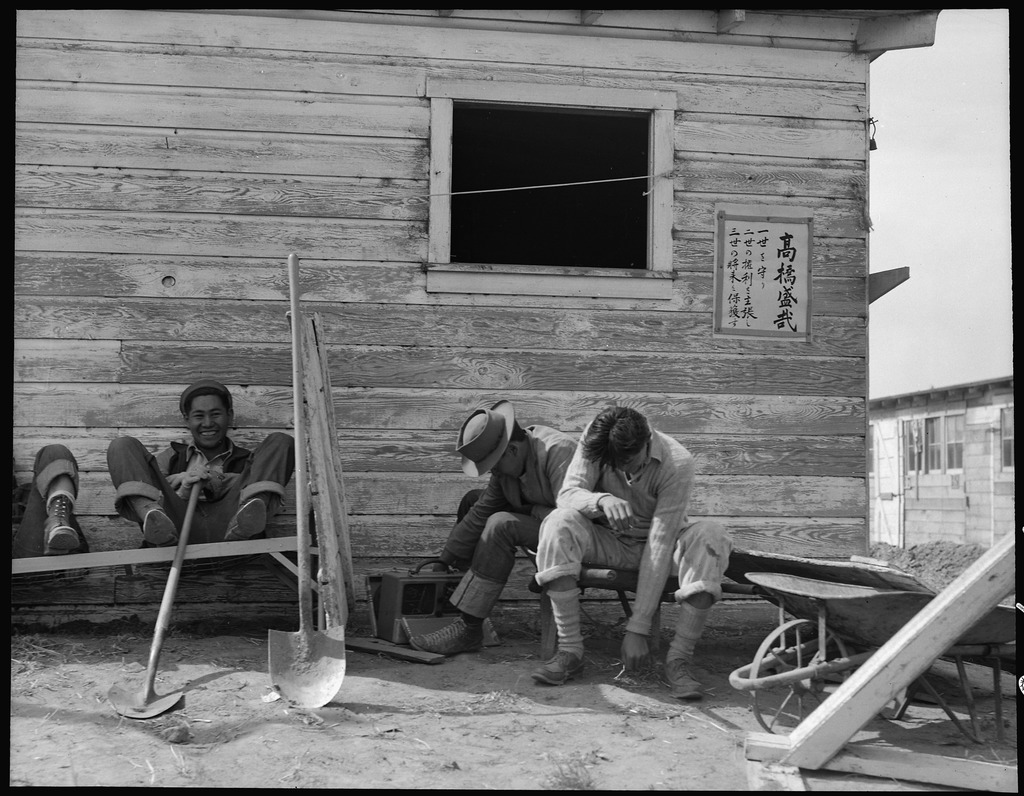
Digging drainage tank along barracks, June 15, 1942; Photo by Dorothea Lange via Densho
On a similar note, Hana tells AsAmNews there’s also something powerful about listening to the stories of other communities. Expanding on earlier statements about marginalized people, she asserts a community should be centered in their own history.
“When an outsider listens to [someone’s history], they do so as a guest within that history. [Of course], they’re welcome to listen to it,” Hana says. “But when they’re positioned in that way, I think it asks them to take responsibility for their learning. [They should also] understand the impact a story has on them is not the impact it’s going to have on others. [Now and in the future], I’d like more stories to be written that way.”
With 3 more episodes in Campu‘s 1st season to go, Hana hopes to further “delve into the details” of “stuff that adds texture to [people’s lives].” Recognizing there’s so much to cover with such little space, she tells AsAmNews she’d love to do more seasons, too.
In the meantime, all episodes are on Apple Podcasts, Google Podcasts, Spotify, Stitcher, and TuneIn. Campu is also on Densho — along with transcriptions — for those who wish to read.

Manzanar concentration camp, July 1, 1942; Photo by Dorothea Lange via Densho
AsAmNews has Asian America in its heart. We’re an all-volunteer effort of dedicated staff and interns. Check out our new Instagram account. Go to our Twitter feed and Facebook page for more content. Please consider interning, joining our staff, or submitting a story.




